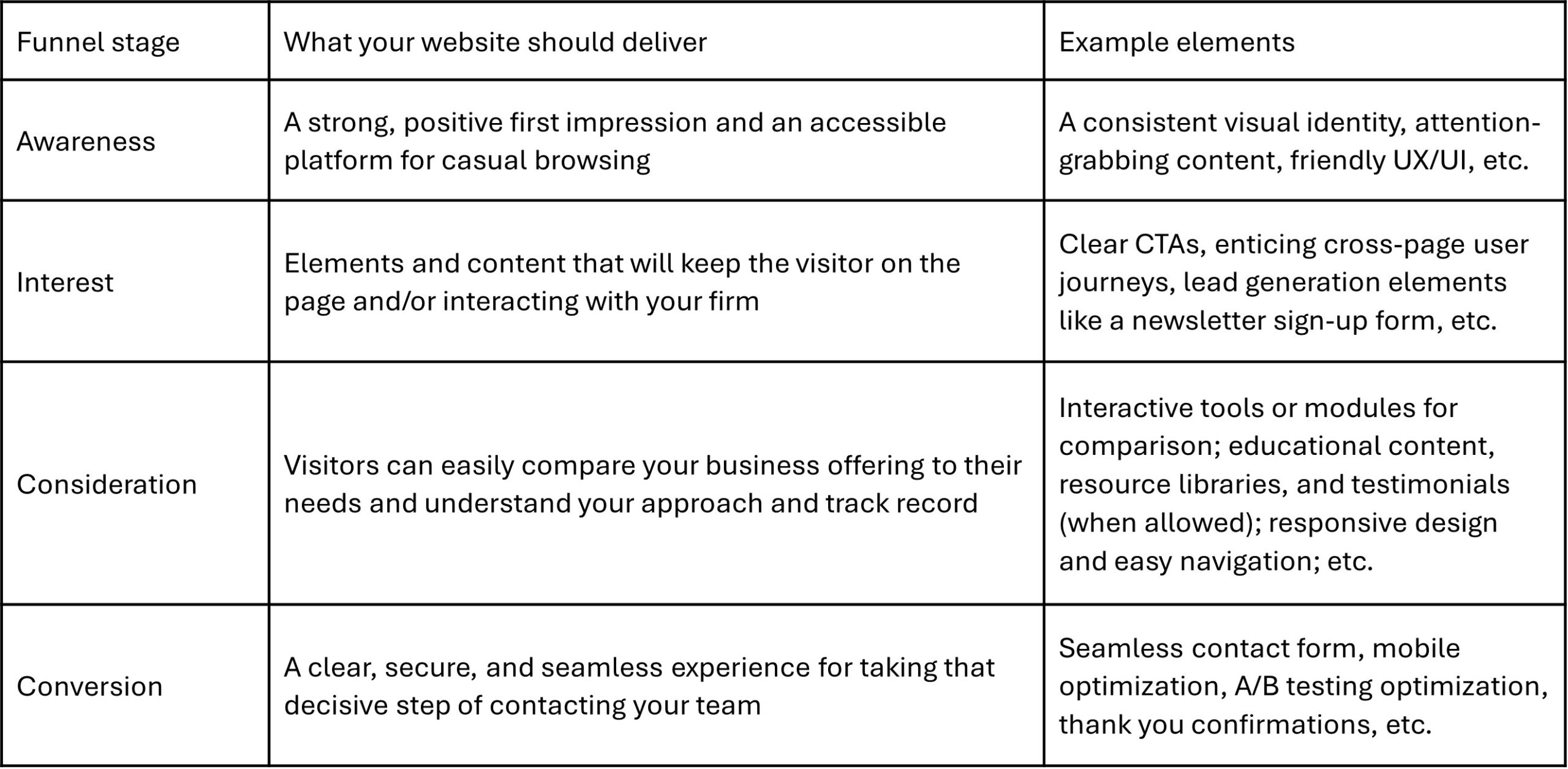At this point we all know that a website is an essential portal for information and a fundamental representation of a firm’s brand. Yet, many asset management firms fall short when it comes to building and optimizing their websites for maximum impact.
In a 2023 survey of 2,500 financial advisors by J.D. Power, one-fourth of respondents said that asset management websites don’t meet the basic criteria they expect.
Meanwhile, more than half (58%) said that they are extremely likely to invest new assets with an asset management firm in the next three months if the firm’s website excelled in three key areas:
- Design and UX/UI: The website is foundationally sound in design and usability.
- Accessibility: Information is easy to find and readily accessible.
- Content Quality: The website effectively delivers clear, valuable information and insights.
Firms must approach their website’s design strategically. Otherwise, they risk missing out on growth opportunities or worse – gaining a reputation as inaccessible or confusing.
In our experience partnering with firms across the industry, we have identified five fundamental principles firms should adhere to when building a new website or optimizing an existing one.
1. Client-centric approach: Instead of catering to internal preferences, focus on your client’s needs.
Many firms set up their websites around their own desires and needs. However, building a truly impactful website does not start with the question, “What does our leadership want?” Instead, you should first ask, “What does the client want?”
Assess and understand your target audiences thoroughly and build customer personas to gain insight into their preferences. Does your audience engage with thought leadership? Do they seek self-service content? Should the website also cater to potential job candidates? Every aspect of the website should align with what the target audience actively seeks to engage with.
2. Customer journey: Align your website with the sales funnel.
After identifying your clients’ wants and needs, align those elements with your sales funnel. Strategically consider how the website will support the visitor through the awareness, interest, consideration, and conversion stages.
Considerations for your website at each stage of the funnel:

3. Technical evaluation: Evaluate your website’s technical status.
While front-end design and content are crucial, don’t overlook the technical aspects. Consider elements like cybersecurity, integration with your tech stack, data management, SEO performance, site speed, and accessibility compliance. Addressing these under-the-hood components is vital for website success.
4. Collaborative partnership: Avoid the common mistake of operating in isolation.
While marketing should lead the project, collaborate closely with business leadership to understand the challenges clients are facing, hear their anecdotal feedback on the current website, and more. Ultimately, you want to align the website with future business plans and growth opportunities, ensuring scalability and flexibility. Balancing involvement is key to a project’s success.
Our team here at White Marble (now known as Alpha Agency) uses a proven approach in our discovery phase to squeeze all the relevant information from the business, without overloading the team.
5. In-house vs. outsourcing: Consider the pros and cons.
Lastly, once you have identified your audience’s needs, aligned to the funnel, evaluated your backend needs and goals, and brought business leadership on board, you need to decide whether to handle the project in-house or partner with external experts.
Questions that will help you in making this decision:
- Do you have a dedicated core website team that will oversee this project?
- Do you have all the necessary skillsets internally?
- Do you have the time to allocate to this project?
If you do decide to outsource, signs of a good partner include in-depth industry expertise, tool integration capabilities, proficiency in measurement and analytics, and the ability to provide comprehensive marketing support and website maintenance.
Your website is an extension of your firm, and it is one of the primary channels for client interaction. Ask the right questions, establish a strong foundation, and designate a core working group to manage the project and your website project will be primed for success.
I would love to hear more about your experience with and goals for your website. Let’s chat – reach out today.
